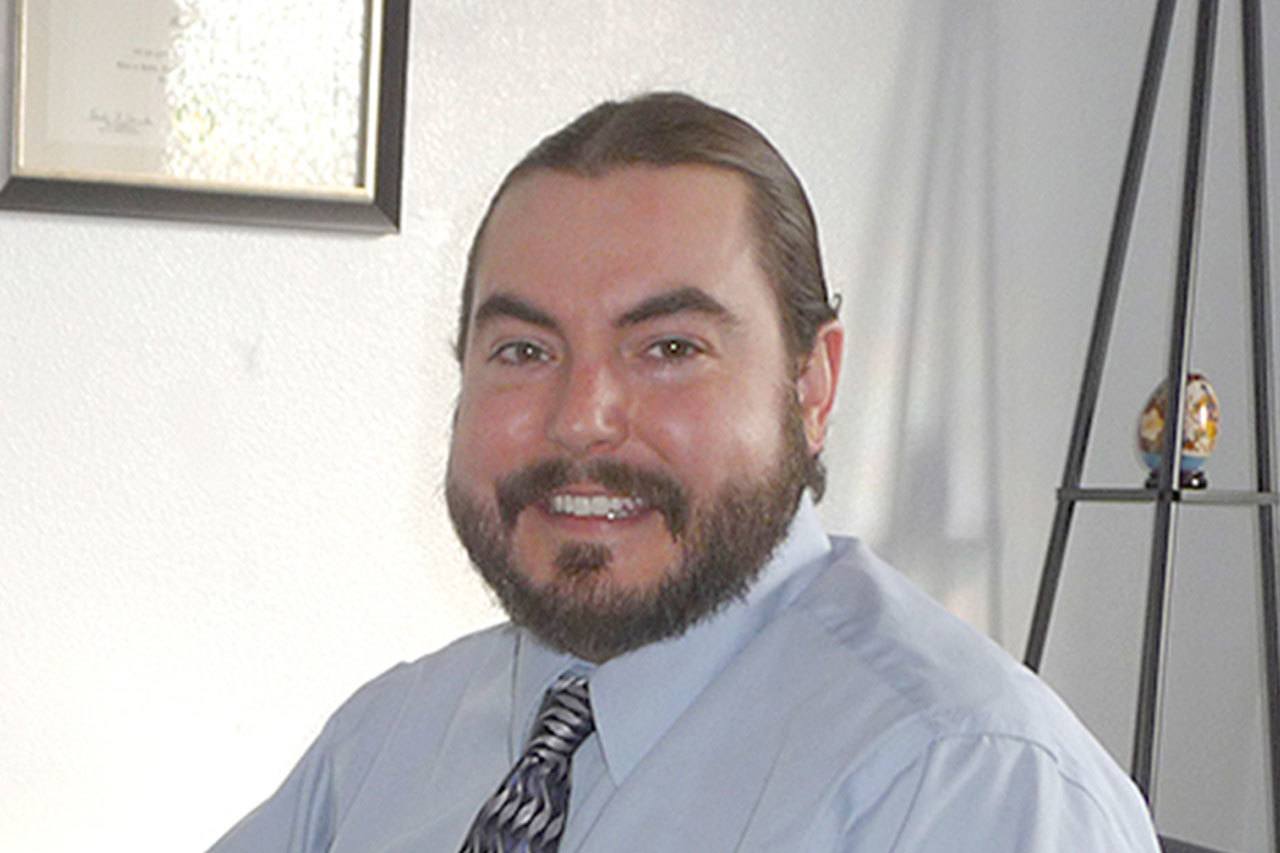Maxwell Counseling
Nate Maxwell, MA, MHP, LMHC
207 W. Spruce St., Sequim
360-797-4307
maxwellcounselinginc@gmail.com
When you enter Nate Maxwell’s counseling office, you’re greeted with a firm handshake, a broad, welcoming smile and a soft, soothing voice, imbued with confidence that by working together, you’ll return to a more contented life.
“I tailor all of the treatment plan to the person’s needs and personality. I’m in the passenger seat — I have a map of possible routes you could go but ultimately, it’s up to you to make the choices of where to go,” the 36-year-old Maxwell said.
Since he was a youth, Maxwell has had an open heart for the elderly and infirm, a compassion that developed between him and his bedridden grandmother. He also was influenced by tagging along with his mother when she volunteered at a nursing home and early on realized he wanted a career in the caregiving field, focusing on seniors — those 60-plus or 55-plus for tribal members.
“We’re a disconnected society from our seniors,” Maxwell observed.
Since arriving on the peninsula from North Dakota nine years ago, Maxwell has held a variety of positions related to the geriatric population, including with OlyCAP, Catholic Community Services and Senior Information and Assistance.
He earned his master’s degree in adult and geriatric counseling from Argosy University in Seattle in 2014 and opened his Sequim practice on Jan. 9. He became certified as a mental health professional and licensed as a mental health counselor in 2016.
“For the geriatric population, there are a lot of difficult health issues as they age and they start losing things more than gaining things,” Maxwell said.
“They’re experiencing a loss of mobility, losses of friends and family members and with those, obviously comes depression. I work with people to see them come to the acceptance of their situation and for mood regulation.”
Maxwell said grief, depression and anxiety are the issues he most commonly sees in older adults but he also can counsel for Post-Traumatic Stress Syndrome and Obsessive-Compulsive Disorder, plus a number of other mental illnesses.
Therapies in treatment
In the therapeutic approaches he employs, Maxwell said, “I’m eclectic so I use a lot of forms of therapy.” There are 146 forms, he noted.
“I like dialectical behavioral therapy, which helps people learn how to live more in the moment; and biofeedback for anxiety, which is seeing if your emotion is what your body is telling you,” Maxwell explained.
For example, he said, “If you’re anxious in a crowd and your heart feels like it’s going to pop out of your chest but when you check your pulse, it’s normal, you realize it’s all in your head. I teach breathing exercises or simple rocking back and forth to relax and stop ‘runaway freight train thoughts.’”
Maxwell said he also relies on cognitive behavioral therapy and homework to “train your brain to process things more appropriately” through journaling via positive affirmations.
“I also like existential therapy, which is helping the client find his or her purpose in life, tailored to the person’s religious, spiritual or scientific beliefs.”
Passion and problem-solving
“Listening to people and problem-solving with them is my passion. I love people’s stories however horrible they may be,” Maxwell said. “It just fascinates me to hear their stories — it energizes me — and seeing people improve in their condition and situation, that really gets me energized!
“I find it fascinating that it just takes an outside perspective to get people on track. When you’re in a situation, you have blinders on and it’s my job to take off the blinders to get a better perspective.”
Every job has its best and worst and the difference between the two are clear-cut, Maxwell said.
“The best is when someone says, ‘I’m doing much better now — thank you,’ that makes my day and puts a smile on my face. The worst is seeing someone decomping or having psychosis. With the senior population, I struggle with dementia and Alzheimer’s patients because I’m providing grief counseling for the family of someone who’s not dead, who’s seeing someone that’s a shadow themselves. That’s very difficult. I would like to start a support group for families with dementia — it would seem invaluable for a community like this.”
Maxwell is working on becoming an accepted provider with several insurance companies, but until he is, he will give patients an invoice to submit to their carrier. He also employs a sliding scale fee. For an added charge, he is willing to counsel patients in their homes.



